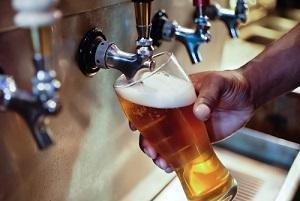 With the winter holidays fast approaching, many workplaces and organizations are starting to schedule Christmas parties and other celebratory gatherings. Many such parties are held at bars, restaurants, and clubs and involve substantial drinking. When a person drives under the influence of alcohol, he or she is generally responsible for any injuries or deaths caused by his or her decision to drive drunk. The law in Connecticut, however, provides that other parties may also share the liability, particularly if the driver was overserved at a bar or restaurant.
With the winter holidays fast approaching, many workplaces and organizations are starting to schedule Christmas parties and other celebratory gatherings. Many such parties are held at bars, restaurants, and clubs and involve substantial drinking. When a person drives under the influence of alcohol, he or she is generally responsible for any injuries or deaths caused by his or her decision to drive drunk. The law in Connecticut, however, provides that other parties may also share the liability, particularly if the driver was overserved at a bar or restaurant.
What Are Dram Shop Laws?
Laws that permit injured parties to seek compensation from bars, clubs, and other sellers of alcoholic beverages are known as “dram shop laws.” In fact, the applicable law in Connecticut is actually titled the “Dram Shop Act.”
The term “dram shop” traces its roots back several centuries to when small stores sold liquor and spirits—often homemade—in small measures known as “drams.” While most people do not use the phrase to describe bars, taverns, or other such establishments today, the name has stuck on the laws that govern purveyor liability.
Overserving an Intoxicated Person
It is illegal in the state of Connecticut for any establishment to provide alcohol to any person who is visibly or obviously intoxicated. The owner of a bar or restaurant that serves an intoxicated customer is subject to fines of $1,000 per occurrence. If that intoxicated person leaves the establishment, however, and causes an accident that results in injuries to another party, the establishment may also be held responsible for those injuries. Connecticut law limits the establishment’s liability to a maximum of $250,000 per incident, regardless of how many people may have been injured.
The injured party—or his or her representative—must show that the employees of the establishment acted recklessly or intentionally in continuing to serve the intoxicated person. An injured party, however, cannot allege negligence on the part of the establishment if the intoxicated person is at least 21 years old.
Social Host Laws
Many states also maintain laws that address the possible liability of private individuals who provide alcohol to guests in their own home. Connecticut is not among them and does not have a social host statute. The Connecticut Supreme Court, however, has found that a social host can be held liable, but only for serving a minor. Just as in a dram shop-related action, an injured party must show that a social host provided alcohol to a minor who subsequently caused bodily injury or property damage.
Contact Us for Help
If a drunk driver injures you or a loved one this holiday season, an experienced Connecticut personal injury attorney can help you seek compensation from each liable party. Call 860-290-8690 for a free, no obligation consultation at Woolf Law Firm, LLC today.
Sources:
https://www.cga.ct.gov/2005/rpt/2005-R-0922.htm
http://socialhost.drugfree.org/state/connecticut
 50 Founders Plaza
50 Founders Plaza

